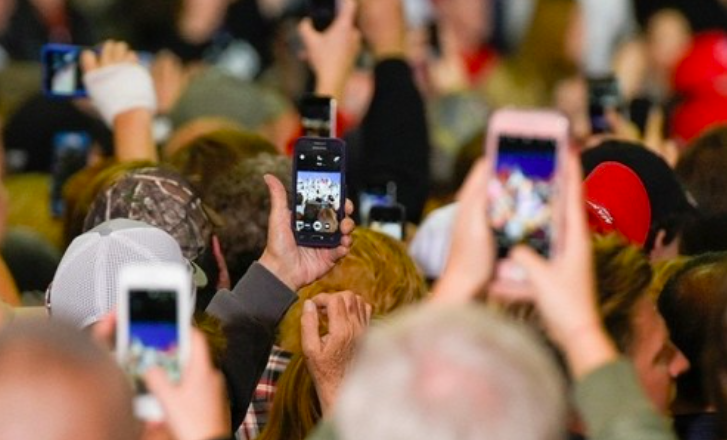A recent disconcerting report based on an investigation carried by 30 global media outlets, including the Guardian and DeSpiegel, claims to have exposed a team of freelance units based in Israel, which disrupt elections and manipulate public opinion using disinformation campaigns.
Undercover reporters recorded a group of covert cyber influence specialists as they pitched their services for seeking fresh business, which involve using disinformation campaigns, false intelligence, hacks and blackmail to promote their clients’ interests. The group, which calls itself ‘Team Jorge’, claims to have worked on dozens of presidential elections around the world and charges multimillion-dollar fees.
Undercover journalists who carried out the investigation included Gur Meggido (The Marker), Frederic Metezeau (Radio France), and Omer Benjakob (Haaretz).
The journalists were part of a collaborative investigation called ‘Story Killers’, which was coordinated by ‘Forbidden Stories’ — an international consortium of investigative journalists that pursue the work of journalists who have been killed
or work under threat.
As reported, the covert units or contractors, used the pseudonym ‘Team Jorge’ headed by Tal Hanan, who previously worked as an Israeli special forces operative, and was apparently caught in an undercover sting operation by the journalists posing as potential clients.
However, Tal Hanan denies any wrongdoing. But he allegedly told the reporters that his unit’s services were available to intelligence agencies, political campaigns, and private companies, and that many European, African, Americans well as Central and South American clients had already used them around the
globe.
Their modus operandi is said to involve creating thousands of fake social media profiles on Twitter, LinkedIn, Facebook, Telegram, Gmail, Instagram, and YouTube. These fake accounts, which allegedly used profile pictures from real social media accounts, were also linked to credit cards and could be used to create thousands of bots that sent mass messages.
In one secretly filmed meeting quoted by the Guardian, Hanan is seen boasting that at present his team is now involved in one election in Africa, besides two other teams in Greece and the UAE. Boasting further, he said that his team has so far delivered 33 presidential-level campaigns globally, 27 of which were successful.
Hanan also reportedly boasted to the undercover reporters that he could hack the email and messenger services of election campaigners, and send messages to their contacts designed to damage their campaign.
The investigators found that Team Jorge’s tech toolbox included “a platform of influence” called Advanced Impact Media Solutions or AIMS, which Hanan claims to have sold to the intelligence services of more than 10 countries. The AIMS software is designed to create convincing avatars for social media campaigns. The avatars, or bots, use stolen photos of real people, operate on any social media platform, and can be connected to functioning Amazon and Bitcoin accounts. They also appear to have a longstanding presence online, including Gmail accounts and trite comments on celebrity YouTube videos, to give investigators the impression they are real people.
In this regard Hanan told reporters that they relied successfully on imitating human behaviour.
Though nowadays most online accounts require phone number and email address verification to keep out bots like those deployed by AIMS. But to overcome that there are websites available, which have been set up specifically to allow one-off SMS-verification services, for 50 cents or less. Many accounts such as Gmail and WhatsApp — can be registered with “verified” phone numbers. Apparently Team Jorge used a service called SMSpva.com for phone number verifications.
Keeping abreast of social media platforms checks, AIMS relied on residential proxies to reroute internet traffic from bots through peoples’ homes so it appeared authentic, in order to avoid detection and shut-downs by social media platforms like Twitter and Facebook. This made it difficult for social media platforms to identify a coordinated disinformation campaign.
Verification and analysis of the recorded conversations by reporting partners Le Monde and the Guardian identified clusters of avatars, including those seen in Hanan’s pitch presentations, that appeared to have been used for coordinated Twitter campaigns.
Reporters found over 1,700 Twitter accounts connected to 21 AIMS-related campaigns, whose networks had produced tens of thousands of tweets.
In December last, during a in-person meeting with undercover reporters, Team Jorge showed off a new capability of AIMS: Artificial intelligence tools to generate fake news using specified key words, tone and topic.
The identities of Team Jorge members were shrouded in secrecy but reporters managed to piece together some background information on some members of the clandestine group. Some of it lines up with claims Team Jorge made about team members in calls with journalists.
One team member described his other colleagues as former senior information officers, former senior financial information and warfare experts, and psychological warfare specialists, all with intelligence services background.
Hanan indicated that he had orchestrated lobbying operations in the US despite not registering as a “foreign agent”, as required by law. He said he worked viaconsultants and companies that are already registered, and told reporters he had recently set up a public relations firm called Axiomatics to promote Team Jorge with “existing lobby groups”.
During calls with undercover reporters, Team Jorge went into specifics about the technology they say the group uses to swing elections. They added that they have six offices and employ at least 100 people, emphasising that they draw on the backgrounds of colleagues with experience in the intelligence services. This pushes Team Jorge’s activities far beyond the realm of public relations strategies that are commonly deployed in elections.
As far as the financial pickings are concerned, Team Jorge told the reporters they would accept payments in a variety of currencies, including crypto currencies such as Bitcoin, or cash. He said he would charge between 6 million euros and 15 million euros for interference in elections.
The information gleaned by the investigative reporters points to one rather disconcerting fact, that there are people out there and they would be there in future too, who would always be ready to interfere in other country’s internal affairs and ready to subterfuge the democratic institutions.
But the bigger question is shall we just ignore them calling it scaling another frontier in the technology advancement or shall we start a campaign to ban such illegal and undesirable activities which may one day be able to destabilise the whole global democratic system?
(Asad Mirza is a political commentator based in New Delhi).

























Add Comment